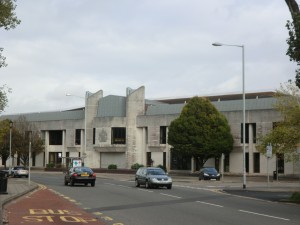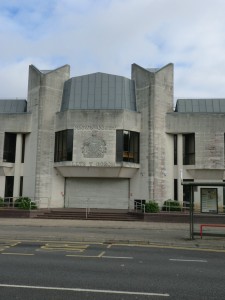Injury to Insult
Four months after the New Cardiff Three were sent to jail – the second miscarriage of justice in the same case – the Crown Prosecution Service’s Special Crimes Department announced that 13 police officers – three of whom were still serving at the time – would face trial for conspiracy to pervert the course of justice. Rachel O’Brien was found to be medically unfit to stand trial. Two further witnesses, Ian Massey and Violet Perriam, were charged with two counts of perjury.
The trials were severed – Wayne Pugh, John Murray, John Bryan Gillard and Stephen Hicks were due to be tried in 2012, but thanks to the deeply flawed reasoning of the Crown Prosecution Service (CPS) that trial would never take place. The whole process was fatally flawed. It was set up to fail and did.
The Police Corruption Trial as it was called did not start for two years. Graham Mouncher, Richard Powell and Thomas Page were the most senior officers to be defendants in that trial. The other police defendants were John Seaford, Peter Greenwood, Paul Stephen, Paul Jennings and Michael Daniels.
The trial of eight police and the two witnesses began on July 4th 2011 – eight years to the day after Jeffrey Gafoor’s guilty plea made this process necessary. The defence outrageously claimed that the Cardiff Five were actually guilty of Lynette’s White Sadistic murder despite their vindication. The trial judge (Mr Justice Sweeney) allowed this in spite of evidence proving them innocent.
Almost 20 years earlier the Court of Appeal, headed by the then Lord Chief Justice, Lord Taylor did not want to hear evidence relating to the prime suspect Mr X, because there wasn’t evidence proving him guilty. The CPS had credible evidence available that destroyed the credibility of this outrageous defence. Professor Dave Barclay had reviewed the scientific evidence and concluded that it amply demonstrated that it was scientifically ludicrous to claim that five men and between two to four alleged eyewitnesses had been present when Lynette was murdered. Barclay explains his reasoning in my second book The Cardiff Five: Innocent Beyond Any Doubt.
The attempt to establish what had gone wrong ended unsatisfactorily as the court was wrongly assured that documents had been deliberately shredded. In fact, they had not been. On December 1st 2011 the trial in Swansea Crown Court collapsed.
Unfinished Business
The attempt to put right what South Wales Police had got wrong had ended in abject failure. It raised issues of whether police, especially the same force that had got it wrong, could ever be relied on to put things right. Regardless of whether this was a sincere attempt to do that or not, it ended in failure and police procedures undoubtedly played a part. We observed this and the developments that followed with concern.
Unusually in a trial process, there was a rush to acquit. Documents had allegedly been shredded, but there was no actual proof that they had been when the trial collapsed. It relied on the vague recollections of a police officer – the Disclosure Officer – and his hearsay assurances to another officer that this had been done.
Those assurances were taken at face value and the CPS threw in the towel without even establishing that this had definitely happened. It would later emerge that nothing of the sort had happened. However, the CPS had made a mockery of disclosure obligations despite being aware that this would be the defence strategy.
After Sweeney had acquitted all the defendants, including those due to stand trial later, the allegedly shredded documents turned up in the possession of South Wales Police in the very boxes that they had been sent in. It was far too late, but it proved one thing beyond doubt – the criminal justice system is incapable of puting right what it got wrong in miscarriage of justice cases and should never be trusted to attempt to do so again.
Continue to Exceptional Injustice P.6




